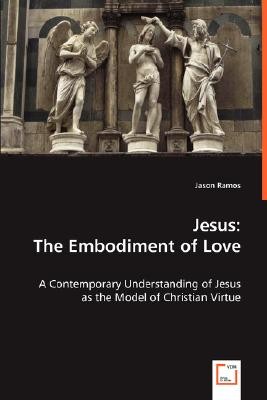
- We will send in 10–14 business days.
- Author: Jason Ramos
- Publisher: VDM Verlag Dr. Mueller E.K.
- Year: 2008
- Pages: 88
- ISBN-10: 3639001702
- ISBN-13: 9783639001709
- Format: 15.2 x 22.9 x 0.5 cm, minkšti viršeliai
- Language: English
- SAVE -10% with code: EXTRA
Reviews
Description
Christians have always emphasized the divinity (rather than the humanity) of Jesus, ignoring the potential value his humanity has for both theology and ethics. In recent times, Karl Rahner, with a greater awareness of Jesus' humanity, has created a theological anthropology that has been indispensable to contemporary theology. Unique to his theology, Rahner describes grace as God's self-communication of love, which is the source and essence of human being. However, Rahner's theology and christology have no real meaning unless they are made relevant to our Christian action, especially in our daily lives. This book proposes that Thomas Aquinas's virtue ethics presents a functional model of Christian ethics. In addition, this work further develops a viable ethical model by updating Thomas's virtue ethics and connecting it to Rahner's theological anthropology. Moreover, this model is based not on some abstract natural law, but on the perfect human paradigm: Jesus. Acknowledging that Jesus (whose full humanity makes him divine), and not merely natural law, is the basis for Christian ethics, this book culminates by discussing the ethics and virtues of Jesus.
EXTRA 10 % discount with code: EXTRA
The promotion ends in 22d.10:46:27
The discount code is valid when purchasing from 10 €. Discounts do not stack.
- Author: Jason Ramos
- Publisher: VDM Verlag Dr. Mueller E.K.
- Year: 2008
- Pages: 88
- ISBN-10: 3639001702
- ISBN-13: 9783639001709
- Format: 15.2 x 22.9 x 0.5 cm, minkšti viršeliai
- Language: English English
Christians have always emphasized the divinity (rather than the humanity) of Jesus, ignoring the potential value his humanity has for both theology and ethics. In recent times, Karl Rahner, with a greater awareness of Jesus' humanity, has created a theological anthropology that has been indispensable to contemporary theology. Unique to his theology, Rahner describes grace as God's self-communication of love, which is the source and essence of human being. However, Rahner's theology and christology have no real meaning unless they are made relevant to our Christian action, especially in our daily lives. This book proposes that Thomas Aquinas's virtue ethics presents a functional model of Christian ethics. In addition, this work further develops a viable ethical model by updating Thomas's virtue ethics and connecting it to Rahner's theological anthropology. Moreover, this model is based not on some abstract natural law, but on the perfect human paradigm: Jesus. Acknowledging that Jesus (whose full humanity makes him divine), and not merely natural law, is the basis for Christian ethics, this book culminates by discussing the ethics and virtues of Jesus.


Reviews